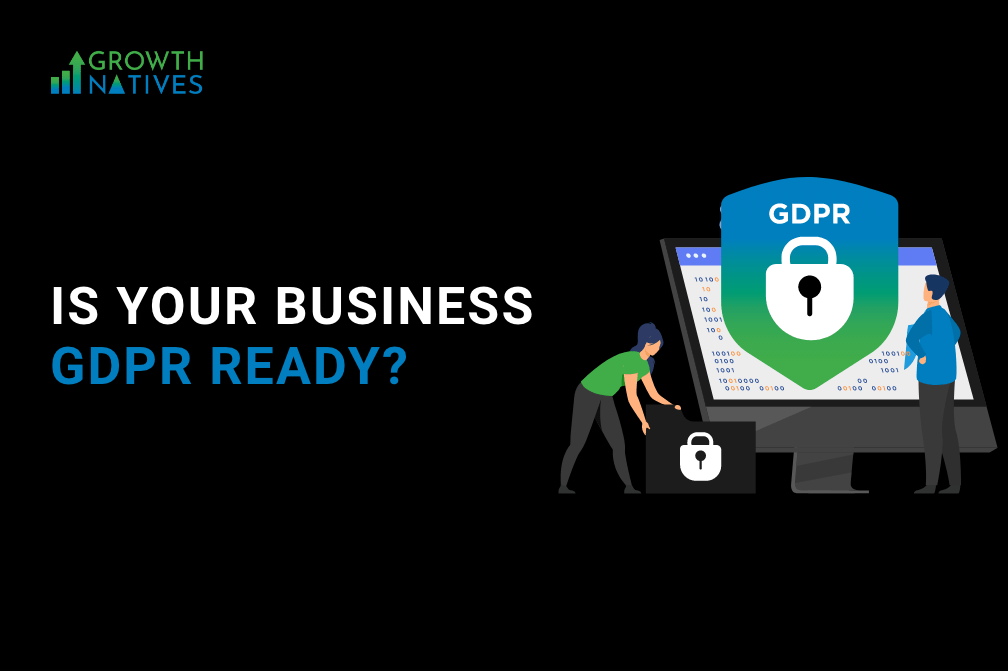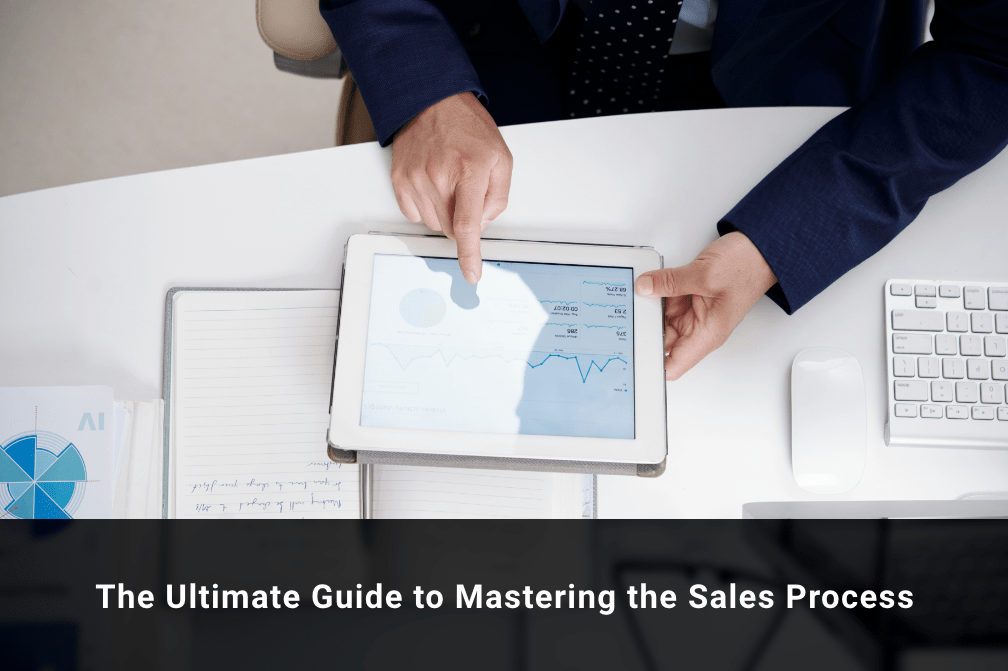Is Your Business GDPR Ready? Here’s All Your Need To Know About The New Privacy Laws

Table of Contents
The European Union's General Data Privacy Regulation, or GDPR, has been the most significant talking point in the marketing community. This data privacy law intended to protect the customers' rights serves as a template for privacy laws worldwide. Since it came into effect on 25 May 2018, businesses with customers in the EU countries have worked overtime to become GDPR compliant. While a lot has happened in the last four years, several businesses are yet to become GDPR compliant. Here are some startling stats from 2022.
- $1.5 billion in fines collected for violating GDPR's data privacy laws
- One-third of EU-based companies are GDPR compliant
- Two in three Americans want privacy laws similar to GDPR
- 90% of customers in the EU don't want to buy from non-compliant businesses
GDPR is the strictest privacy law there has ever been. It impacts marketers' approach to campaigns and how organizations generate, store, and process personal data. Non-compliance can cost your business dearly and affect your marketing campaign. Let us understand GDPR and how your business needs to prepare for this latest privacy law.
What Is GDPR?
GDPR is a European Union regulation that lays down strict guidelines and legal frameworks for collecting, processing, storing, and selling data. This regulation aims to protect personal data and prevents its misuse. It overrides local privacy laws across the entire EU and EEA region.
It applies to all businesses and organizations that collect and manage personal information about European citizens, including companies from other continents. It lays down strict rules for organizations that collect and process customer data. This regulation will weed out intrusive marketers with steep fines and other penalties.
8 Basic Rights Under GDPR
Chapter 3 of the GDPR clearly states consumers' rights under the "Rights of the Data Subject." Every organization must ensure these rights to their customers. The eight rights include the following:
- Right to Access
Users have the right to access their personal data stored with a company and know how the data was collected and is being used. The organization has to provide a copy of this data free of charge via an electronic format whenever requested.
- Right to be Forgotten
Customers have the right to be forgotten. They can withdraw their consent given to a company for the use of their personal data.
- Right to Data Portability
GDPR allows individuals to request the transfer of their data to a service provider of their choice. Businesses must accept these requests and transfer the data in a machine-readable format.
- Right to Be Informed
Customers have the right to be informed about the data collected. They have their choice to opt-in, and consent must be sought during data collection rather than implied.
- Right to Have Information Corrected
Individuals can have their data corrected or updated whenever it is incorrect or incomplete.
- Right to Restriction of Processing
All customers have the right to request a permanent end to the processing of their data. While organizations can retain the record, it cannot be used for marketing.
- Right to Object
The customers can object to processing their data for direct marketing campaigns. Organizations must educate the customer about this right at the start of their association. Any objection raised by the customer should be full and final, and there is no exception to this right.
- Right to be Notified
Whenever a person's data has been compromised, they have the right to be informed within 72 hours of the organization being aware of the breach.
4 Steps to Make Your Marketing Campaigns GDPR-Compliant
Making your business GDPR-compliant requires you to assess your current data management process and make necessary changes to rules and protocols while training your team simultaneously. Here's a four-step guide to making your marketing campaign GDPR-compliant.
Step 1: Assessment
Start by assessing how you collect customer data, why you collect it, and how it is being stored and used for your marketing campaigns. If you dig deep into this process, you will uncover many secrets you already don't know. Here are some of the questions you need to find answers to during the assessment stage -
- What kind of personal data are we collecting from our customers?
- What is the source of this data, and do we have the customer's consent?
- Have we collected this data fairly, and have the customers been informed about the purpose of this data collection?
- Have we informed the customers about their right to withdraw consent?
- Are we keeping this data up-to-date and not holding it longer than deemed necessary?
- Is customer data safe with us, and have we implemented the latest security protocols to secure it?
- Have we limited access to customer data, ensuring it is accessible only to those who need it?
- Do we collect sensitive personal information or genetic data and adhere to the necessary protocols while collecting and storing such data?
- Is personal data being stored outside the EU, and are there required data protection protocols in place?
Step 2: GDPR Plan
Once you have assessed how the data is collected and managed, it is time for your GDPR plan. This plan is to ensure that the data of EU citizens is collected, stored, and managed in compliance with the latest privacy laws. At this stage, you must have answers to the following questions -
- Does our project plan comply with the latest GDPR laws?
- Have we allocated the required resources and budget to implement the project plan?
- Have we carried out a Data Privacy Impact Assessment?
- Has our organization appointed a Data Privacy Officer well-versed in the GDPR laws?
- Do we have plans to implement 'Data Protection by Design and Default' as stated in Article 25 of GDPR law?
- Have we considered how we handle employee data in our plan?
Step 3: Setting Procedures and Controls
It is the business end of making your marketing campaign GDPR compliant. Here you will have to establish the protocols and controls, ensuring the law is implemented across the board. The following questions need to be asked at this stage.
- Is our team well-versed in EU data privacy to handle issues?
- Is our security team aware of obligations under the GDPR?
- Does our security team have the required resources to implement changes in the process?
- Can we handle requests from clients to modify or delete access to their personal data?
- Is our process compliant with the latest GDPR rules?
- Have we set security notification procedures to meet reporting obligations?
- Have we set a review and audit procedure in place?
Step 4: The Documentation
After you have laid down the procedures and controls, you should follow up with documentation. It will inform your users of how the data is collected and used. It also serves as a reference for your team in the future. Here are some of the questions you must ask at this stage.
- Have we updated our Privacy Policy to comply with the GDPR?
- Have we clearly stated our policy on data retention periods for customers, prospects, and vendors?
- Has our GDPR migration process been documented?
- Have we updated our contracts as per Article 28 of the GDPR?
Why Should Marketers Cheer GDPR?
As we have already discussed, marketing won't be the same with GDPR, and marketers will have to double-check the user data available to them. Naturally, there hasn't been enthusiasm around GDPR in the marketing community, and a sense of fear prevails. However, data privacy isn't all that bad, and there are several positives to being GDPR compliant. Here is why you should cheer for this data privacy law as a marketer.
Customers Shall Be Treated With More Respect
Let's step into customers' shoes, and you will realize how a section of marketers abuse their rights with intrusive campaigns. Such intrusive campaigns often create a negative sense and distaste in the customers' minds. They can distrust genuine outreach campaigns, affecting legit businesses and their campaigns. With GDPR, marketing will become customer-friendly which will weed out scam stars and poorly run businesses. It is a welcome move for professional marketers.
Increased Transparency Between Businesses and Customers
GDPR, in principle, ensures greater transparency in how customer data is collected, stored, and used. It will lead to better and finer data collection and more successful campaigns. It will make customers more confident while sharing their Information with businesses they are interested in. It is reassuring for customers and prospects to know that their personal data is governed by stringent laws that prevent misuse.
Better Marketing Campaigns
GDPR has set the bar high; not every business would make the cut. Intrusive and misleading marketing strategies that worked in the past have been shown the door. Companies with better and more innovative marketing campaigns will benefit. If you put your mind to the campaign, you will see results faster than before.
Final Thoughts
It is often said that data is the most valuable currency in a digital-savvy world. GDPR is not meant to create challenges but protect the rights of consumers while creating new marketing opportunities for businesses. As a customer-centric business, you must be GDPR compliant and value your customers' privacy and rights.
It may be challenging to implement GDPR and make your business compliant. But at Growth Natives, we are a full-stack marketing automation agency that has helped several clients become GDPR compliant, and we can help. Our marketing automation experts are well versed in GDPR law and help you overcome the challenges without affecting the continuity of your customer relationship. Feel free to set up a consultation with our team by emailing us at info@growthnatives.com.
Author Box
Sakshi Arora
Sakshi Arora is a seasoned content writer and editor with extensive experience across various industries including B2C, B2B, travel, e-commerce, and IT. In her free time, she enjoys expressing her creative side through painting and writing poetry. She also finds solace in nature and has a deep spiritual connection. Music brings her immense joy.




